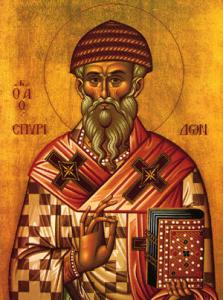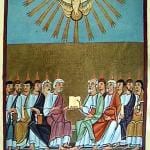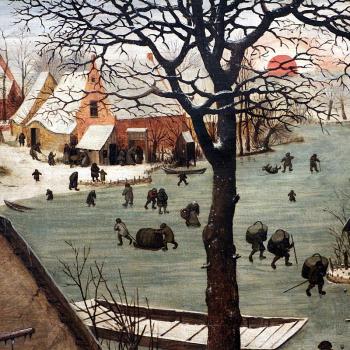
The “Left” in my title is indeed political, though one could also take in the sense of the Left Behind series; it would mean much the same thing. In the American context especially (and I’ve written about this before), to be Christian and on the Left is often to feel left out, or left behind, or, at least, generally alienated. Some would not dare speak their thoughts in a parish-related context or, if they do, they’re carefully guarded.
I’m not, of course, saying that Left Christians (and in my case I am predominantly thinking of Catholics) are oppressed or even really discriminated against—at least not in any overt way. I’m merely speaking of an atmosphere or ambience.
This may sound off to those who just went to a Christmas Mass or liturgy that was 200% fuller than the average Sunday service. Aren’t most of those people likely milquetoast centrists or complacent center-leftists? And, of course, aren’t those both part of some horrifying, overarching, totalizing thing called “the Left” by the modern Right-leaning media?
Well, yes—probably. But what I’m interested in exploring in this post is what it means to be “of the Left” and “faithful,” that is, truly affirming of the Creed, steeped in the history and traditions of Christianity while committed to Left-leaning politics. Many might believe this impossible; consider this something of a manifesto for both why its not and why, for many, it’s an unavoidable corollary of belief in the Incarnation, the Resurrection, and the Kingdom of God. For many of us, sympathy with Leftist ideas becomes a necessary extension of righteous faith.
Why bother writing about this? For starters, because there seems to be this idea (and one that, honestly, I cannot hope to change on my own) that Left Christians are theologically inept, that they are wolves in sheep’s clothing with no real commitment to orthodoxy. In addition, I have Christian friends on the Left whose personalities and social media accounts are more saturated by “traditional” forms of devotion than many Right-learners I know. It feels to me as if they are being wronged on account of stereotypes that wave away their faith-filled commitments.
With that out of the way, let’s start with a clarification: “Leftist” and “Liberal” do not mean the same thing. While many in the latter camp might be well-intentioned, they are more likely to be what used to be (and in some circles still are) called “Modernists.” They might be as bad as, say, John Shelby Spong (who denies the Incarnation and the Resurrection, among other things), who might be summed up by this statement of his:
Christianity is, I believe, about expanded life, heightened consciousness and achieving a new humanity. It is not about closed minds, supernatural interventions, a fallen creation, guilt, original sin or divine rescue. (Why We Must Reclaim the Bible from Fundamentalists)
Spong is a textbook humanist, with no real commitment to anything like traditional doctrine. For him, fundamentalists are as much those who accept Original Sin (or Ancestral Sin, not that there’s a difference) as those who accept Young Earth Creationism. He’s not a Marxist, nor does he seem to care about “the common person.” He’s just heterodox—plain and simple. Nothing political about it.
There are, of course, less extreme examples. There are times when Pope Francis’s commitments seem to veer from a legitimately Leftist anti-capitalism to something a bit more simply of the world, that is, liberal. But anyone with ears to hear, I think, can apprehend that the pope accepts the basic doctrines of the Faith. You may disagree with his social and political commitments, that is where, he decides to put emphasis on certain questions, but he is not a heretic—he doesn’t deny the Incarnation or abrogate some other fundamental point of the Creed.












